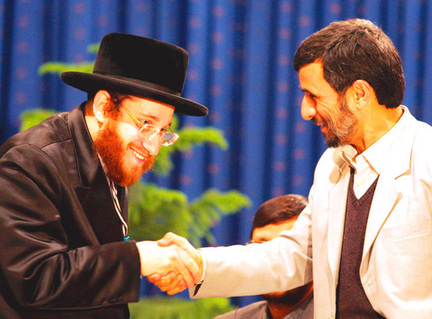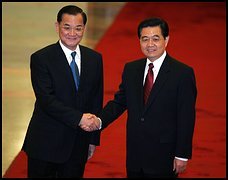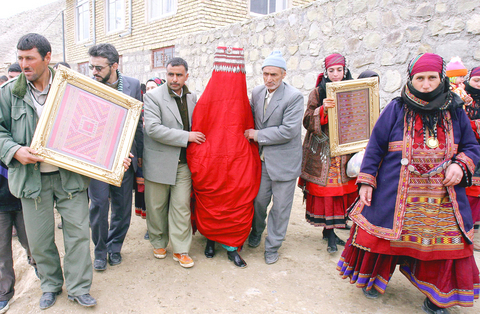Heh, heh. More from the man the China Post recently dubbed a "prolific, witty writer and social critic":
Meanwhile, maverick [independent] candidate Lee Ao* – who won a total of 7,795 ballots, or less than 1 percent of the total votes – said that the results of the [Dec 9th Taipei] mayoral election proved there is no justice in Taiwan. "The results only showed Taiwan’s democracy is a fake democracy and that voters are polluted by partisanship," said Lee. [Emphasis added]
[* Alternately spelled Li Ao, depending on the newspaper – The Foreigner]
Welcome to the real world, Li, where party candidates have an advantage over their independent rivals. And no, what the results ACTUALLY show is that Taiwan’s voters are polluted with the silly notion that mayors shouldn’t be lunatics who open cans of teargas inside deliberative meetings, or reveal grainy 40-year old black-and-white NUDE POSTERS of themselves within the legislature.
I remember what good-ol’ Al Bundy used to say at times like that. Something to the effect of, "My eyes! Oh God, I think I’m blind!"


(Li Ao vs. Alessandra Mussolini. While neither would get my vote at the ballot box, I know who I’d rather see nekkid!)
Over at the China Post, Joe Hung couldn’t resist looking down his nose at the electorate, too:
The heart of Khaohsiung belongs to the ruling party. And the heart won.
[KMT chairman] Ma Ying-jeou appealed to their minds in vain.
In other words, we lost because the voters were nothing but a bunch of irrational boobs. Oddly enough though, Taiwan’s major independence party is probably toasting Khaohsiung voters right now for their wisdom and perspicacity. While I’ve seen this sort of sour grapes at the China Post before, I’ve never commented on it. Cry in your beer the day after if you must, but never, EVER, express contempt for voters. Particularly majorities. Tough to get elected when people realize you despise them.
James Soong’s reaction was something of a contrast with Li Ao’s and the China Post‘s. Must be rough getting a measly 4% of the votes in a crummy race for mayor 12 years after handily winning a provincial governership race with 4.7 MILLION votes. Yet despite his drubbing, Soong still managed to say that he respected the decision the people of Taipei made in the election.
Can’t quite give him full credit for that though, seeing as though he couldn’t even find it within himself to congratulate the victor afterwards. What’s the deal with that, anyways? Bad sportsmanship? Excessive pride? Sense of entitlement? He did the same thing when he lost the presidential elections of 2000 and 2004, but those were narrower contests. This time he clearly lost – lost by a huge margin – and he STILL couldn’t pick up the phone and say, "You sure fought a good campaign. I wish you well the next four years."
Admitting defeat and congratulating the winner in democratic politics isn’t just a matter of good manners; it’s a way of reaffirming one’s allegiance to the system. We fought a political battle according to a set of rules, and I lost. I may not like you or your ideology, but I recognize that the country will be better off if I recognize that you now have the right to lead. Conversely, the country will suffer if I step outside the system and try to wrest that right away from you.
But beyond that kind of altruism is another reason – a purely selfish reason – why candidates and parties admit defeat after democratic elections. Recall The Right Stuff, and John Glenn’s response to the press after learning the Soviets have racked up yet another first in space:
I think we ought to be forthright, gracious and magnanimous about this and say, well, the Russian guys just beat the pants off us, that’s all. And there’s no sense in kidding ourselves about that. But now that the space race has begun, I think that there’s going to be plenty of work for everybody.
Glenn admits losing because he doesn’t want to kid himself. He wants America to roll up its sleeves and get to work so it can do better next time. But if you can’t acknowledge defeat, like Li Ao and James Soong and the China Post, then there’s a big temptation to engage in self-delusion instead: I lost because the election was stolen, or, I lost because the voters are my intellectual inferiors, or, I lost because of a mysterious "assassin’s" magic bullet.
Tough as it may be to admit, sometimes the fault lies not within the voters, but within ourselves.
UPDATE (Dec 14/06): Wednesday’s Taipei Times seconds my final point here and here.
i-2







